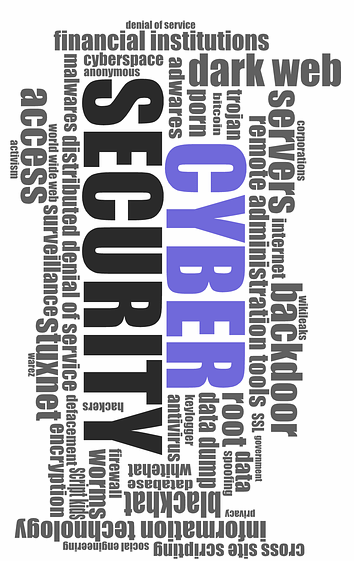Hackers seem to be everywhere these days, on the news, in the movies. You can’t turn around without seeing a news story about a major data breach or massive hacking attack that took down a huge company’s online operations.
You just want to be left alone to play your PC games, browse Facebook, the basics. You don’t want to become a target or victim of a hacker. So the question is, what can you do to make your computer a less attractive target to a hacker.
 Here are 5 Ways You Can Make Your Device a Less Attractive Hacker Target:
Here are 5 Ways You Can Make Your Device a Less Attractive Hacker Target:
Some routers feature a mode called “stealth mode” where the firewall on the router does not respond in the traditional manner when a port scan is run against it.
If your router offers this feature you should consider turning it on to make your network (and the devices behind it) less conspicuous to hackers attempting to probe your network.
Virtual Private Networks (VPNs) - is one of the best way to protect yourself from hacking and cyberattacks. VPN encrypts your internet connection and makes your online activity private. Your browsing history is hidden from prying eyes, nobody can spy on you.
You can purchase a VPN service on a monthly basis for little more than the price of a decent cup of coffee (Trust Zone VPN price starts from $2.33/mo)
VPNs offer a plethora of security features such as encryption of all network traffic, anonymous browsing, as well as some great features that take advantage of the ability to choose an IP address from your home country when you are traveling abroad.
Read more here - 7 Things you didn't know about VPN technology
Not seeing a padlock icon next to a network name when a hacker is scanning for available Wi-Fi networks is a huge turn-on for them.
This tips them off to the fact that there is essentially free Wi-Fi available because there is no password required to access networks that don’t have encryption turned on (hence, the lack of a padlock icon).
If you don’t have wireless encryption turned on, you are basically advertising to hackers and neighbors that your bandwidth is freely available for the taking. If hackers happen to use the free Internet that you are graciously providing them to carry out hacking and other crimes, guess who it will be traced back to? That’s right, YOU. You can plead ignorance but there is no guarantee that it will be an acceptable excuse.
Lock down your Wi-Fi with WPA2 (or better) encryption with a strong password to avoid being an unwitting accomplice to a hacker’s misdeeds
Hackers love to see a system with unpatched vulnerabilities that they can exploit, gain entry to, and take control of. You need to make sure you're using the automatic update feature of your operating system so that as soon as a security patch is released it will be pushed to your PC. You should periodically do a manual check as well to ensure that the auto-update process is working as it should be.
Check for updates of your Internet-connected apps (web browsers, plug-ins, etc) on a frequent basis as well and turn on their “check for updates” feature (if available). Don’t forget to check for updated wireless router firmware, as your router manufacturer might have updates waiting in the wings as well.
When it comes to your PC’s security, you don’t want to be the weakest link. You definitely don’t want to get tricked into installing malware or fall for some other scam that puts your PC and your personal data at risk.
You need to stay up to date on the latest vulnerabilities and educate yourself on human-based attacks such as those found in social engineering attacks.
Author's Bio:
Alissa Zucker is an essay writer at the paper writing service Mcessay.com. She is interested in reading classic and psychological books which give her inspiration to write her own articles and short stories.